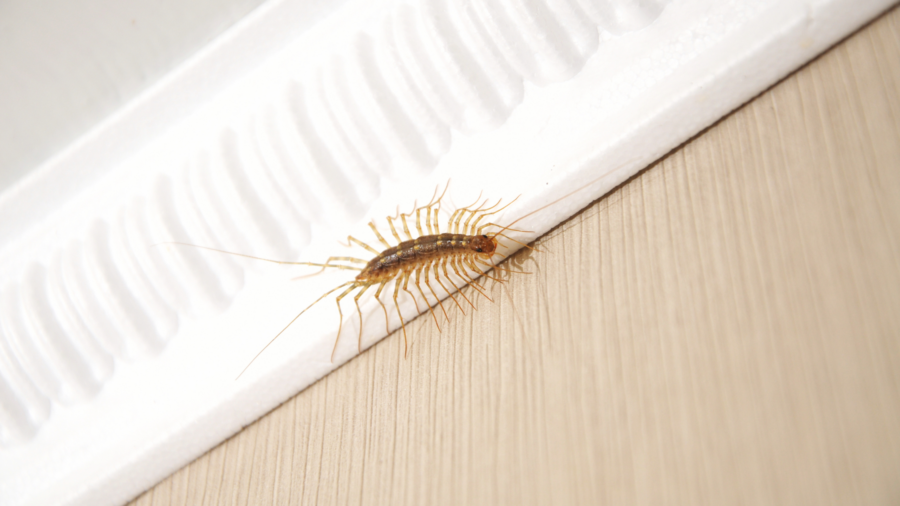READY TO GET STARTED?
REQUEST A FREE ESTIMATE
Fill out the form below or call (888) 466-7849 for a free, no-obligation estimate.

Centipedes: those creepy crawlers that send shivers down our spines when we encounter them scurrying across the floor. But beyond their unsettling appearance, many homeowners wonder: can centipedes bite or sting? Let’s dive into the facts and debunk the myths surrounding these household pests.
Centipedes are elongated arthropods with multiple pairs of legs, ranging from 15 to 177 pairs depending on the species. They typically have a flattened body and are light brown to dark brown or even reddish in color. One distinguishing feature is their long antennae and the pair of venomous claws located behind their head, known as forcipules.
Spotting a centipede indoors is often the first sign of an infestation. They tend to hide in dark, damp areas such as basements, bathrooms, and crawl spaces during the day and come out at night to hunt for prey.
While centipedes may look intimidating, they are generally not aggressive towards humans. However, if threatened or mishandled, they can deliver a painful bite using their venomous claws. While the venom is not typically dangerous to humans, it can cause localized pain and swelling.
Centipedes can be beneficial to your property by preying on other household pests such as cockroaches, spiders, and silverfish. However, their presence in large numbers can indicate an underlying pest problem that needs to be addressed.
Prevention is key when it comes to controlling centipedes in your home. Here are some tips to keep them at bay:
Don’t let centipedes and other household pests invade your space. Take proactive steps to protect your home and family by partnering with a trusted pest control company. Contact a pest control company near you today for a free pest control quote and let our experienced technicians help you reclaim your home from unwanted intruders.
While centipedes can bite if provoked, they are generally not a significant threat to humans. However, their presence can indicate underlying pest issues that need to be addressed. By following preventive measures and seeking professional pest control assistance when needed, you can effectively manage centipedes and enjoy a pest-free home environment.
Categories